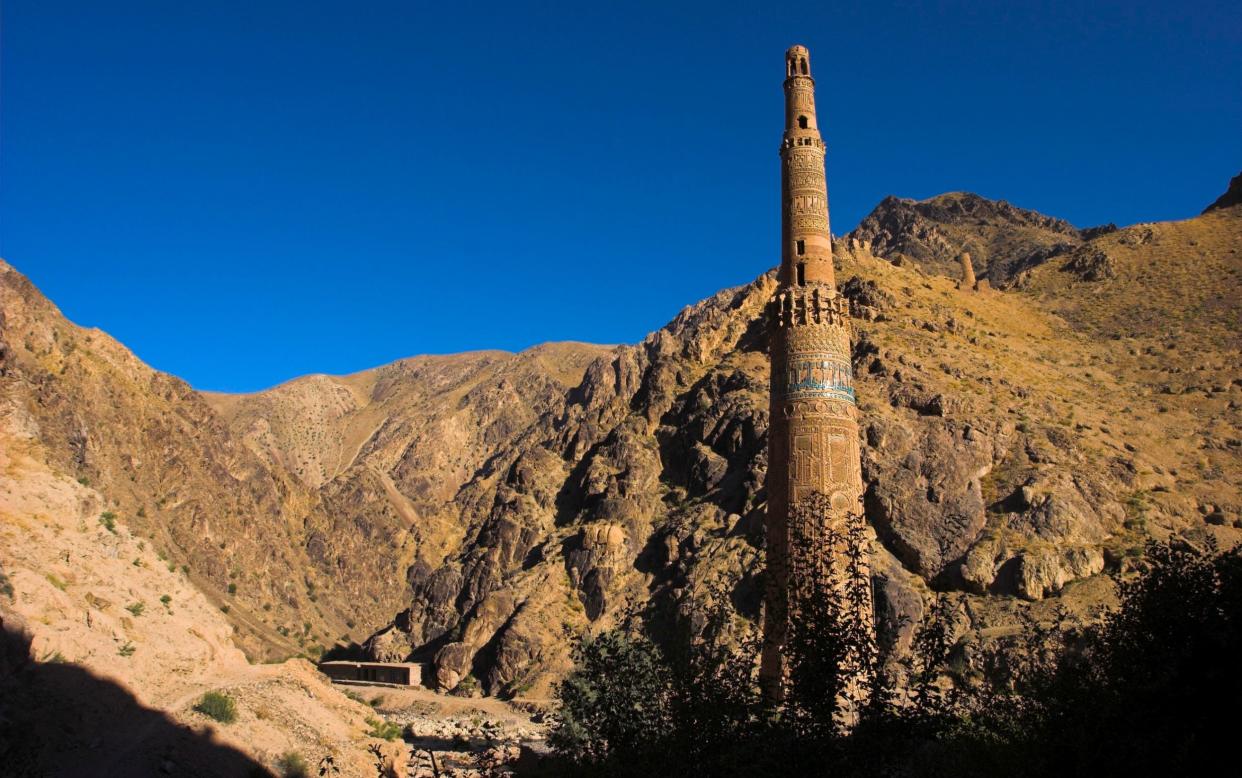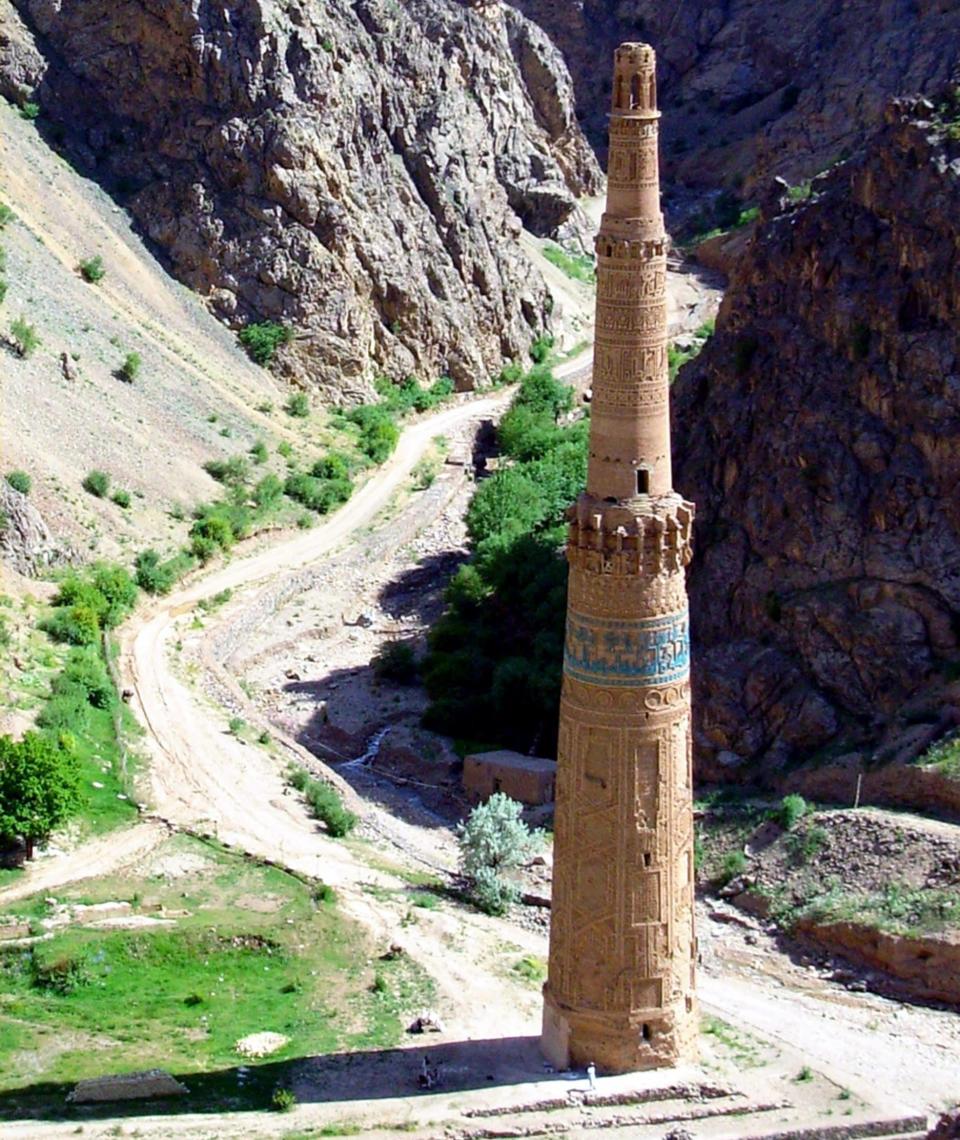Minaret of Jam, one of Afghanistan’s greatest architectural treasures, in danger of collapsing after floods and neglect

A remote 800-year-old minaret which is one of Afghanistan's greatest archaeological treasures is in danger of falling down because of flood damage.
The Minaret of Jam stands taller than Nelson's Column and is on a list of United Nations world heritage sites, but is now in an “alarmingly precarious” condition, a survey has found.
Archaeologists fear the condition of the 213ft (65m) tower will worsen over the winter as moisture and ice get into the brickwork and add to the damage.
A local Taliban official earlier this month warned that the three-storey tower was in danger of collapse if action was not taken.
The loss of the minaret in Ghor province would be a “devastating, devastating tragedy”, said Rory Stewart, a former secretary of state for overseas development.
Mr Stewart, who walked past the minaret while trekking through the country in 2002 soon after the Taliban were ousted, said the tower was one of the most important monuments in Central Asia.
He said: “You come down this tiny, narrow deserted gorge, having crossed a 14,000 foot pass and suddenly you find this thing exploding in the middle of this valley.
“It's the most beautiful, haunting, extraordinary tribute to this lost civilisation. It would be one of the great, great most devastating cultural losses that we could experience for the last 50 or 60 years to lose something like that.”
The brick-built late 12th century minaret sits in a hard-to-reach valley at the confluence of the Hari Rud and Jam Rud rivers. Its three cylindrical levels rise from an octagonal base, and the whole tower is covered in elaborate decoration interspersed with text from the Quran.
Historians believe it sits at the site of Firozkoh, or Turquoise Mountain, a city which was destroyed by a son of Ghenghis Khan and the minaret is thought to be the only remains of the settlement.

Archaeologists have for years warned that the minaret is in poor condition, but a recent survey by the Aga Khan Development Network said flooding in 2019 had shifted debris to the base of the tower.
“With the onset of winter, the damp bricks and wet mortar at the base of the monument will be exposed to the frost cycle resulting in further damage to the masonry structure of the unstable and leaning minaret,” the network said.
“Depending on the depth of the penetration of frost into the masonry structure, it can be reasonably expected that both the bricks and the mortar will decay extensively causing further reduction in the load-bearing capacity of the 65-metre-high monument.”
Sediment deposited by the floods has also raised the level of the riverbed, meaning subsequent floodwaters will be brought closer to the base of the monument.
“This will result in a larger section of the unstable minaret being submersed under floodwater risking the complete collapse of the monument,” the review found.
The local Taliban governor earlier this month also said he was alarmed about the condition of the tower.
“It does not belong to Ghor alone. It belongs to the entire world,” Mawlawi Ahmad Shah Din Dost told state television. He said he had inspected the minaret and signs of damage were clearly visible.
“The minaret may collapse if the Information and Culture [Ministry] of the Islamic Emirate or international charity organisations fail to pay attention," he said.
The minaret has been listed among world heritage properties in danger since 2002 by the UN's cultural arm. Torrential flood waters surged alarmingly close to the base of the minaret in 2019 and Unesco was the same year given £1.4m ($1.9m) to save the minaret by the International Alliance for the Protection of Heritage in Conflict Areas. It now remains unclear how Unesco will work with the Taliban after they swept to power to re-establish their Islamic Emirate in August 2021.

